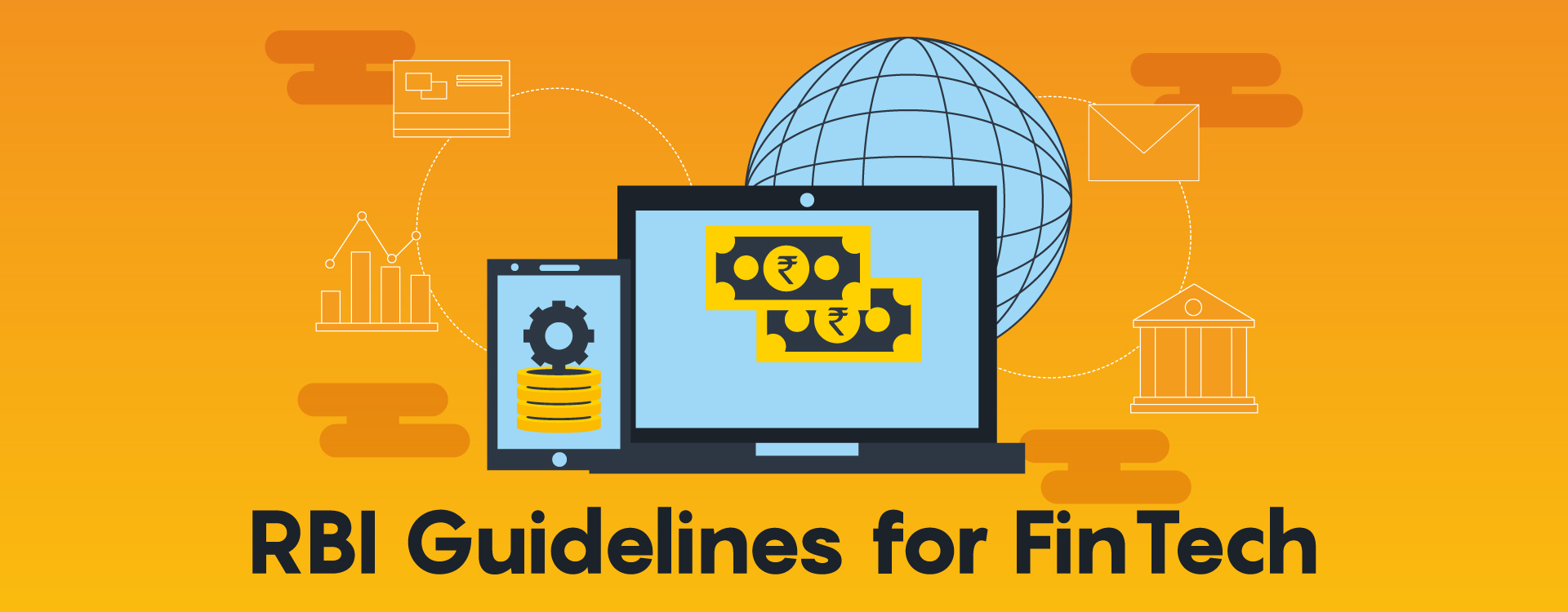FinTechs are gradually taking over the modern banking and financial sector especially with customer inclusion and easier services. India has emerged as the fastest growing FinTech market and the third largest FinTech ecosystem in the world. With the opportunity of a digital payments market of $ 1 trillion, we observed 3,435 crore digital payments in the year 2019-20. FinTech can easily become the fourth segment of the Indian Financial System and recent growth trends have led to the Reserve Bank come up with guidelines for the FinTech startups to ensure customer security and industry efficiency.
RBI Guidelines for FinTech Startups :
- Being an online space, every FinTech Start-up must satisfy the criteria and guidelines issued by the RBI which include customer privacy, data protection, security of transactions, secure storage and KYC requirements.
- Being the primary facilitative regulator, the Reserve Bank expanded the scope of priority sector lending to include FinTech start-ups. To overcome the issue of internet connectivity for digital payments in rural areas and induce offline digital transactions the RBI came up with a pilot scheme. Under this scheme, authorised Payment System Operators (PSOs) can provide offline payment solutions using mobile devices, cards, wallets for remote areas.
- The guidelines aim at inducing innovative technology in retail payments, money transfer, marketplace lending, digital KYC, digital identification services, financial inclusion, cybersecurity products, data analytics, application program interface (API) services, blockchain applications, AI and Machine Learning.
- Reserve Bank organised measures for secure digital payments like the need of Additional Factor of Authentication, online alerts for every transaction you make, increasing customer confidence in FinTech platforms. It is now compulsory for digital lending start-ups to disclose the name of the Bank(s) or NBFC(s) upfront to the customers.
- The Report of the Working Group on FinTech and Digital Banking (RBI, 2018a) has warned regulators from overprotecting incumbents and from biasing newcomers through differentiated treatment. With a surge in dominance of larger digital payment startups, there will be a trade-off between cheap services by data-driven groups and making sure there to incentivise competition and innovation in the financial ecosystem.
In the post-COVID era, the FinTech Start-ups have immense potential to transform the financial landscape in providing consumers with a larger range of products. However, the rapid growth initiated needs to be observed and regulated so that the economy can manage the technological and entrepreneurial flux




